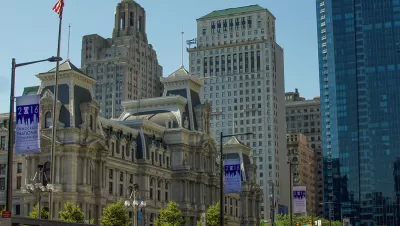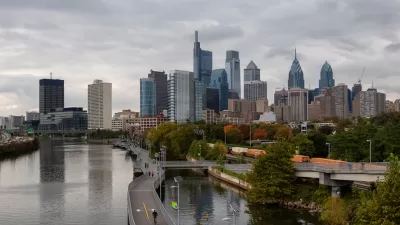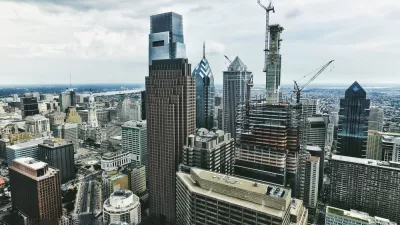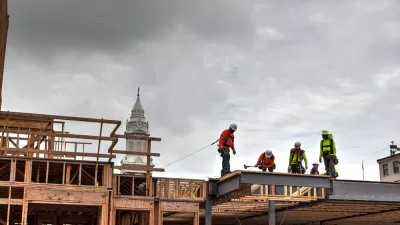Philadelphia's controversial "Mixed-Income Housing Program" legislation has run into stiff resistance from developers and builders.

The city of Philadelphia has hit a roadblock in an attempt to approve a new inclusionary zoning ordinance.
The latest development in the unfolding saga occurred on Monday, when the City Council's Rules Committee postponed a vote on the bill by Councilmember Maria Quiñones-Sánchez until December 5. Jake Blumgart reports that the postponement came after five hours of testimony, with criticism about the bill originating from the development and building industries.
The postponement follows news from last week, also reported by Blumgart, which saw amendments "radically reshape" the bill. Also last week, "[t]he Planning Commission decided the bill needed more work and voted to place a hold on it," reports Blumgart.
Here's how Blumgart describes the changes between the original bill and the bill after the amendments made last week:
The original bill would have required any new development in Philadelphia larger than nine residential units to set aside 10 percent of the units as affordable units. Although a percentage of them could be covered by a payment into the city’s Housing Trust Fund or offered off site, some of the units had to be interspersed throughout the building. That’s why the legislation is described as a “Mixed-Income Housing Program.”
The amendments Sanchez is now offering would change all that. Developers are now allowed to opt out of on-site development completely in exchange for paying into the trust fund. The bill originally would have covered the entire city, offering different affordability limits in Center City and the rest of town. But now the bill only applies to high-density zoning districts (RM-4, RMX-3, CMX-3, CMX-4, and CMX-5), which are concentrated in Center City, University City, and along a few major thoroughfares in other neighborhoods.
After the City Council's Rule Committee hearing earlier this week, Councilmember Maria Quiñones-Sánchez is quoted saying that there isn't any new information that is likely to change the position of any interested participants in the debate.
FULL STORY: Hold the zone: Vote on inclusionary zoning delayed a week in wake of opposition

Alabama: Trump Terminates Settlements for Black Communities Harmed By Raw Sewage
Trump deemed the landmark civil rights agreement “illegal DEI and environmental justice policy.”

Planetizen Federal Action Tracker
A weekly monitor of how Trump’s orders and actions are impacting planners and planning in America.

Why Should We Subsidize Public Transportation?
Many public transit agencies face financial stress due to rising costs, declining fare revenue, and declining subsidies. Transit advocates must provide a strong business case for increasing public transit funding.

Understanding Road Diets
An explainer from Momentum highlights the advantages of reducing vehicle lanes in favor of more bike, transit, and pedestrian infrastructure.

New California Law Regulates Warehouse Pollution
A new law tightens building and emissions regulations for large distribution warehouses to mitigate air pollution and traffic in surrounding communities.

Phoenix Announces Opening Date for Light Rail Extension
The South Central extension will connect South Phoenix to downtown and other major hubs starting on June 7.
Urban Design for Planners 1: Software Tools
This six-course series explores essential urban design concepts using open source software and equips planners with the tools they need to participate fully in the urban design process.
Planning for Universal Design
Learn the tools for implementing Universal Design in planning regulations.
Caltrans
Smith Gee Studio
Institute for Housing and Urban Development Studies (IHS)
City of Grandview
Harvard GSD Executive Education
Toledo-Lucas County Plan Commissions
Salt Lake City
NYU Wagner Graduate School of Public Service





























